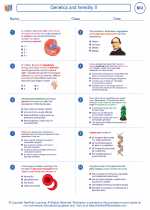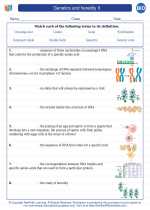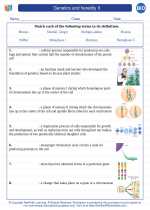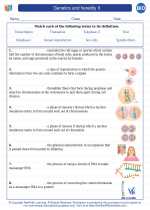Topic: Solid
A solid is one of the four fundamental states of matter. Solids have a definite shape and volume, and their particles are closely packed together in a regular pattern. The particles in a solid vibrate in place, but do not have enough energy to overcome the attractive forces between them, which is what gives solids their fixed shape and volume.
Characteristics of Solids:
- Definite shape and volume: Unlike liquids and gases, solids have a fixed shape and volume, meaning they maintain their structure and size.
- Particle arrangement: The particles in a solid are tightly packed together in a regular, repeating pattern.
- Particle motion: While the particles in a solid do vibrate, they do not have enough energy to move past each other, which is why solids maintain their shape.
- Melting point: Solids have a specific temperature at which they melt and turn into a liquid.
- Examples: Examples of solids include ice, wood, metal, and plastic.
Study Guide:
To understand the concept of solids, it's important to focus on the following key points:
- Describe the characteristics of solids, including their shape, volume, particle arrangement, and motion.
- Explain the concept of melting point and how it relates to the transition from a solid to a liquid.
- Provide examples of common solids and their properties.
- Discuss the differences between solids, liquids, and gases in terms of particle behavior and arrangement.
- Explore the various uses and applications of solids in everyday life and industry.
Understanding the properties and behavior of solids is essential in the study of chemistry and physics, as well as in various practical applications in engineering, materials science, and other fields.
[Solid] Related Worksheets and Study Guides:
.◂Biology Worksheets and Study Guides High School. Genetics and heredity II
Worksheet/Answer key Genetics and heredity II
Genetics and heredity II  Worksheet/Answer key
Worksheet/Answer key Genetics and heredity II
Genetics and heredity II  Worksheet/Answer key
Worksheet/Answer key Genetics and heredity II
Genetics and heredity II  Vocabulary/Answer key
Vocabulary/Answer key Genetics and heredity II
Genetics and heredity II  Vocabulary/Answer key
Vocabulary/Answer key Genetics and heredity II
Genetics and heredity II  Vocabulary/Answer key
Vocabulary/Answer key Genetics and heredity II
Genetics and heredity II  Vocabulary/Answer key
Vocabulary/Answer key Genetics and heredity II
Genetics and heredity II  Vocabulary/Answer key
Vocabulary/Answer key Genetics and heredity II
Genetics and heredity II  Vocabulary/Answer key
Vocabulary/Answer key Genetics and heredity II
Genetics and heredity II  Vocabulary/Answer key
Vocabulary/Answer key Genetics and heredity II
Genetics and heredity II 

 Worksheet/Answer key
Worksheet/Answer key
 Worksheet/Answer key
Worksheet/Answer key
 Vocabulary/Answer key
Vocabulary/Answer key
 Vocabulary/Answer key
Vocabulary/Answer key
 Vocabulary/Answer key
Vocabulary/Answer key
 Vocabulary/Answer key
Vocabulary/Answer key
 Vocabulary/Answer key
Vocabulary/Answer key
 Vocabulary/Answer key
Vocabulary/Answer key
 Vocabulary/Answer key
Vocabulary/Answer key

The resources above cover the following skills:
LIFE SCIENCE (NGSS)
Heredity: Inheritance and Variation of Traits
Students who demonstrate understanding can:
Ask questions to clarify relationships about the role of DNA and chromosomes in coding the instructions for characteristic traits passed from parents to offspring.